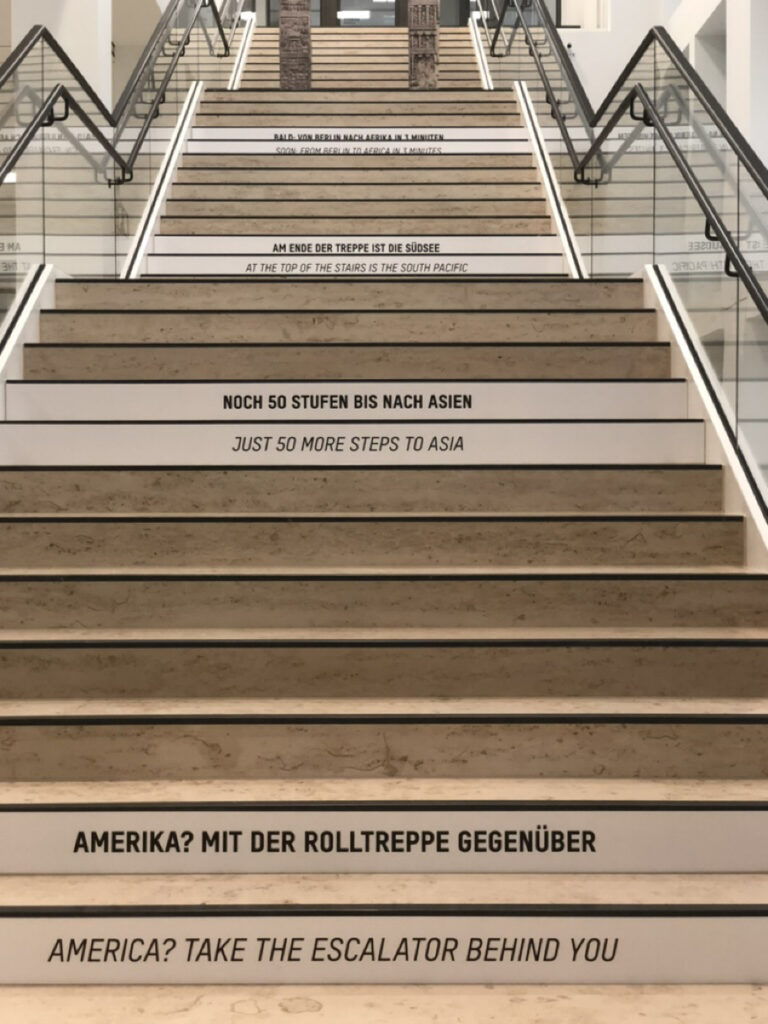DISSECTING INFRASTRUCTURE IN BERLIN’S MUSEUMSCAPE BY MARGARETA VON OSWALD
ONLINE CONTRIBUTION / AFTERNOON SESSION 1.0
The stairs guiding to the exhibitions of the Ethnological Museum and the Museum of Asian Art in the Humboldt Forum, announcing their future opening, 21 April 2021, photograph: Margareta von Oswald.
The title of the project ‘Museum Why’ reflects how museums are expected to radically transform at this particular moment in time – including what and who they are to serve, and which mission they are supposed to accomplish and fulfill. The museums involved in MuseumWhy are all institutions devoted to modern and contemporary art. My research has been mainly concerned with ethnological collections and the museums that house them. However, many of the challenges that ethnological museums are facing today – issues related to ownership and restitution; taxonomic order and the grappling with colonial namings and categories; representation and participation – appear in contemporary and modern art institutions as well, even if sometimes in less obvious, visible and legible terms.
A standard definition of ‘to dissect’ describes it as a means ‘to identify and examine the basic elements or parts of (something) especially for discovering interrelationships’ (Merriam Webster online dictionary). ‘Dissecting infrastructures’, then, resonates with my own research practice. In my upcoming book, I use the notion of ‘working through’ in order to describe, but also to challenge the nitty-gritty, laborious, tiresome efforts of what it means to work through the colonial legacies of an established museum-institution, such as the Ethnological Museum in Berlin; and thus focusing, as in the definition of ‘dissecting’, on identifying, deconstructing, and examining the multiple relationships that hold the museum.
The thoughts I contributed to the first session of the Afternoon session series stem from my engagement with the multiple relations between curatorial practice and anthropology; as a discipline both historically embedded in, as well as critical of colonial ideology. How can these disciplines with their own methodologies and histories learn from each other? How can they become even more relevant to one another? In my presentation, a key example of Berliner’s activism against the Humboldt Forum served as an entry point for my presentation to discuss the relationship between curatorial agency, anti-Humboldt Forum activism and the remembrance of German colonialism. I problematised the Humboldt Forum’s infrastructural settings and public attitude towards German colonialism at different moments in times, concluding that despite ongoing changes, its infrastructures continue to foster the Forum’s self-entitlement to represent cultures as Others (see image above).

CREDIT
Margareta von Oswald
